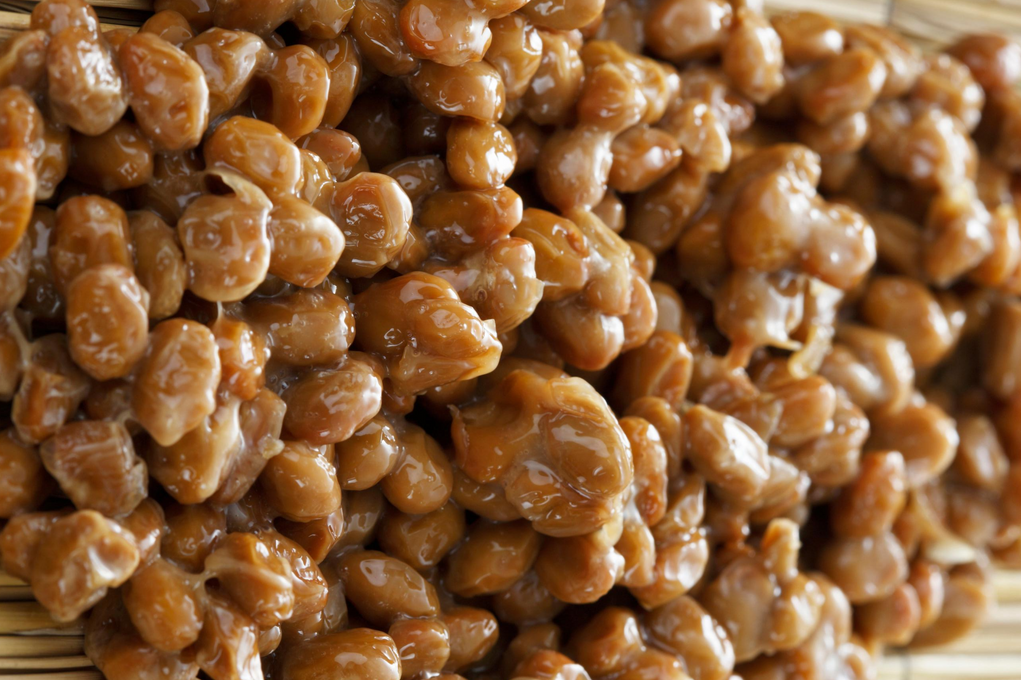Soy… it can divide opinion! It plays a key role in the creation of our glorious Food Based nutrients, so we’re firmly on the ‘love’ side of the argument! It’s gained a bad reputation amongst some over the years, but as one of the most nutritious food sources on the planet, by the end of this blog if you were in any doubt, we hope you might change your mind!
The low-down on soy!
Whether you add soy sauce to your stir fry or you can’t get enough of miso, most people have heard of soy. Whilst it’s become popular here in the western world in recent years, soybeans are legumes native to East Asia. Records of soy date back to 1000 BC, where they were most popular in both Japan and Korea. At this time soybeans were considered a sacred crop, essential for enriching soil and supporting crop rotation. Slightly later, soy became an integral part of Asian diets, and has been for centuries. Many consider it to be one of the most nutritious foods on the planet. With a huge number of health benefits, soy is now a popular part of the western diet and many of us enjoy it today, and for very good reason!
Soy: The nutrition
Traditional forms of soy include tofu, tempeh, miso and natto… Sound familiar? Most of us will have a bottle of soy sauce in our cupboard or have become a little obsessed with tofu, but why is soy so good for us? The nutritional profile of soy really stacks up! It’s a rich source of protein and contains a complete amino acid profile. Soy also contains B vitamins including B1, B2 and folate, as well as minerals including calcium, magnesium, zinc and iron. The health benefits don’t stop there either! Fermented soy including natto and miso also contain probiotics which help to support our digestive health and are much-loved by our gut microbes!
So, with this in mind you may be wondering where it all went ‘wrong’ for soy’ reputation...
Soy: A bad reputation
As soy became widely produced, it was recognised for its versatility and cheap cost of production. This meant it was added into a whole host of different products including processed foods, sauces, dressings and even chocolate bars. This overuse of soy is where things started to take a turn! The type of soy that was used in these products was completely different. It was isolated. In order to widely produce this isolated, cheap soy, chemical solvents and high temperatures must be used. This means that in the end result, all of the goodness we mentioned before has been lost. It no longer contains the abundance of vitamins, minerals, amino acids, or probiotics that we spoke about before.
You may have heard of soybean oil, it is used in abundance in the USA and is produced using refined, isolated soy. The concern with the production of soy products in this way is the high temperatures that are used during the manufacturing process. The solvent, known as hexane and high temperatures oxidise the fatty-acids present in the soybeans. Evidence suggests that these oxidised fatty-acids, when consumed convert into free radicals in the body and contribute to cellular damage and the development of certain diseases, including certain cancers.
Soy and phytoestrogens
Phytoestrogens are compounds that occur naturally in plants and have a similar chemical structure to estrogen found in the human body. Soy contains phytoestrogens, which many worry may affect their hormone balance. There was concern that the phytoestrogens could ‘mimic’ estrogen throwing our hormones out of sync. The opposite is actually true - they’re found in lots of plant foods like flaxseeds and lentils, and actually boast a number of benefits to human health. Studies have proven them to be a powerful antioxidant, reduce the risk of the development of osteoporosis and are beneficial in the support of menopausal symptoms.
Soy: The bottom line
Soy in the form of natto, miso, tempeh or tofu have a huge number of benefits to our health. We’re fully in favour of it being one of the most nutritious foods on the PLANET… Yes we love it that much! The bottom line is you need to make sure that you’re consuming soy in it’s wholefood form. This way, you’ll be getting all of the goodness you’re hoping for, and it’ll be totally delicious too! Eating soy in it’s natural, purest form can provide you with a wide range of nutritious benefits, the good news is - we use the best kind of soy!
Soy and our Food Based supplements
As you may have seen across our social media channels and previous blog posts, this month we’re highlighting our Food Based Difference. Our Food Based nutrients have always been at the heart of everything we do here at Link Nutrition, so we wanted to share with everybody in the Link Nutrition Community exactly WHY we love them. If you fancy reading more on that, you can find the blog here. One of the reasons why we love our Food Based nutrients, and we’re so proud of our label is because soy natto is involved! Yes, you heard that right, one of the most nutritiously-rich foods in the world is part of the process to make our Food Based nutrients!
In short, without going too ‘sciencey’, our Food Based nutrients are created using saccharomyces cerevisiae, a type of yeast, and one of nature’s most cherished micro-organisms. These little miracles workers turn vitamins and minerals from pure isolated chemicals into complex components of a whole food matrix, and the end result is our Food Based nutrients. Now, this might sound complicated but don’t worry it's actually very simple.
Essentially, the yeast that is vital in our fermentation process requires a source of nutrition to survive, and create our glorious Food Based nutrients. This is where soy natto comes in! During the fermentation process non hexane washed (that just means without the nasty chemical solvent we mentioned earlier) soy natto is added into the nutrient mix. The key here is that the soy natto we add into this mix, includes all the beneficial goodness (vitamins, minerals, and amino acids), which allows the yeast to grow and thrive so it’s able to create highly nutritious, complete Food Based nutrients - pretty amazing right?!
If you want to learn more about the benefits of our Food Based nutrients, then why not check out our blog ‘The top 10 benefits of Food Based Supplements’ for our full round up! Don’t forget to keep an eye on our social channels too as we take a look about our label and continue to talk about all things Food Based!
From The Blog
-

25th February 2025 / Health
Empowering Women’s Health: Key Supplements for Well-being
Women’s health is a lifelong journey, with each stage presenting unique nutritional and wellness needs. From maintaining energy levels to supporting hormonal balance and bone health, the right comb...
Read article -

17th February 2025 / Health
Empowering Women’s Health: Lifestyle Tips and a Key Supplement for Perimenopause and Menopause
NaomiWomen’s health evolves through various life stages, and the transition into perimenopause and menopause brings unique challenges. During these phases, hormonal fluctuations can lead to symptom...
Read article -

10th February 2025 / Health / Products
The Best Foods and Drinks to Help Your Body Recover from Burnout
Burnout is a growing issue in today’s fast-paced work culture, leaving many people feeling exhausted, overwhelmed, and depleted. While rest and self-care are essential, nutrition plays a crucial ro...
Read article




